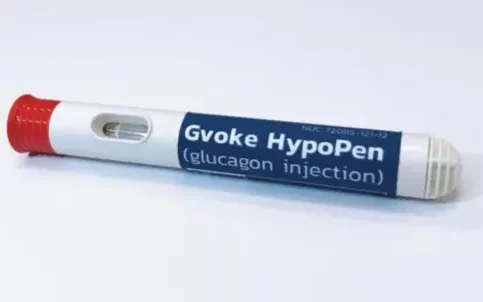In this article, we’ll explore one key hormone related to diabetes called growth-variant peptide ghrelin (Gvoke). Understanding how Gvoke impacts people with type 1 or type 2 diabetes will help you manage your condition accordingly. Let’s take a look at what you need to know about Gvoke and its connection to diabetes management.
When you have type 1 or type 2 diabetes, your body either doesn’t produce enough insulin to break down sugars in your blood or it doesn’t respond appropriately to the insulin that is produced. Either way, your blood sugar levels remain high and that can lead to a number of complications. Luckily, there are medications and lifestyle changes that can help control your condition.
What is Gvoke?

Gvoke is a hormone that’s produced in your stomach. It belongs to the peptide family and is often referred to as the hunger hormone. Ghrelin levels are typically highest before eating and drop after you eat a meal. Ghrelin is also produced when you’re stressed out, so it can also be a source of anxiety. When your body is in a state of stress, it increases production of ghrelin. Ghrelin works to stimulate your appetite and regulate metabolism. When you’re under stress, ghrelin also plays a role in regulating blood sugar levels.
How does Gvoke help Control Diabetes?
Gvoke helps reduce blood sugar levels by increasing the rate at which your body breaks down sugars. One study concluded that Gvoke injections helped participants reduce their blood sugar levels for up to 3 hours.
This is good news for people living with diabetes, as those with type 1 need to have consistent, low blood sugar levels and those with type 2 need to have consistent, low blood sugar levels.
When you have diabetes and your blood sugar remains high, you’re at risk for diabetic coma and other serious complications. Patients with type 1 diabetes have to monitor their blood sugar levels throughout the day. For people with type 2 diabetes, controlling blood sugar levels is important for preventing other conditions, including kidney disease, nerve damage, and eye problems.
How to Control Gvruk and Diabetes with Gvoke
Gvoke plays a crucial role in helping people with diabetes control blood sugar levels. To help maintain healthy blood sugar levels, people with diabetes can follow a healthy diet and engage in regular exercise. There are also medications that can help manage diabetes, including insulin to help people with type 1 diabetes lower their blood sugar levels and medications like metformin or sulfonylurea to help people with type 2 diabetes control their blood sugar levels.
Gvoke is a natural hormone that’s produced in your body, but it can also be used as a treatment for managing diabetes. Gvoke injections are available as a prescription medication. This treatment is usually given to people with type 1 diabetes who have trouble maintaining healthy blood sugar levels.
While Gvoke does have a positive impact on blood sugar levels, it does come with certain side effects. When Gvoke levels are too high, they can increase the appetite and cause weight gain. People with diabetes will also see an increase in their blood sugar levels. When blood sugar levels are too low, Gvoke helps to increase your blood sugar levels back to normal. When blood sugar levels are too high, Gvoke helps bring them down to normal. Gvoke injections may cause nausea, vomiting, abdominal pain, headache, and rash. People with diabetes should speak with their doctor before taking Gvoke as a treatment for controlling diabetes.
Conclusion: Gvoke: The Hormone That Helps Control Diabetes
When your body is in a state of chronic stress, that can have an impact on your diabetes management plan. To prevent unnecessary complications, it’s important to work with your doctor to manage the stress in your life. Gvoke is a natural hormone produced in your body, but it can also be used as a treatment for diabetes. It works to help lower blood sugar levels and can be used along with other diabetes management strategies to help control your blood sugar levels.
